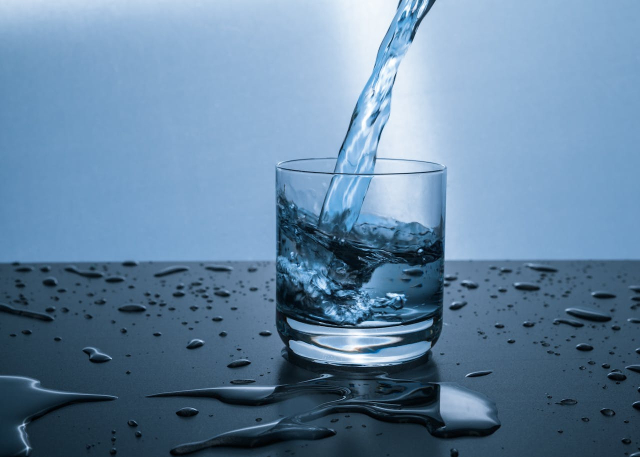In the world of diet and wellness, one of the most common pieces of advice is “drink more water to lose weight.” Many people firmly believe that increasing water consumption can be the key to effectively losing weight. But is this really true or is it just another myth in the vast universe of dietary recommendations? Throughout this article, we will explore what science says about it and how water might (or might not) influence weight control.
The role of water in the body
Before we address the topic of weight loss, it is important to understand the essential role of water in our bodies. Water accounts for approximately 60% of body weight in adults and is involved in almost every vital function. From regulating body temperature to removing toxins through urine, water is essential for life. Without proper hydration, the body cannot function optimally.
In addition, water contains no calories, sugar or fat, making it an ideal option to stay hydrated without providing extra energy to the body.
How could water help you lose weight?
The idea that water can help you lose weight is based on several factors:
- Appetite reduction: One of the most common theories is that drinking water before meals can help reduce appetite. By temporarily filling the stomach, water can give a feeling of satiety, which could lead to eating less.
A study published in Obesity in 2010 found that middle-aged and older adults who drank 500 ml of water before each meal lost 44% more weight over 12 weeks compared to those who did not. This finding supports the idea that water may play a role in hunger control. - Increased metabolism: Some studies suggest that drinking water can temporarily boost metabolism. A study published in the Journal of Clinical Endocrinology and Metabolism found that consuming 500 ml of water can increase resting metabolic rate by up to 30% for about an hour. This effect is attributed to the body's effort to warm the ingested water to body temperature.
- Replacing high-calorie beverages: Drinking water instead of sugary or alcoholic drinks can significantly reduce your daily calorie intake. For example, a can of soda contains about 140 calories. If you replace your regular soda consumption with water, the calorie deficit could contribute to long-term weight loss.
- Eliminating toxins: Although the body has natural systems for eliminating toxins, such as the liver and kidneys, proper hydration is essential for these organs to function properly. This could prevent fluid retention and improve the overall appearance of the body.
The limits of drinking water to lose weight
While water may have certain benefits related to weight loss, it is also important to recognize its limits:
- It is not a substitute for a balanced diet: Drinking water is not a substitute for a healthy diet or regular exercise. Although it can help control appetite and temporarily increase metabolism, it cannot compensate for a diet rich in ultra-processed foods or a sedentary lifestyle.
- Temporary effects: The effects of water on metabolism are short-lived. While a glass of water may slightly increase caloric expenditure, this increase alone is not enough to cause significant weight loss.
- Drinking too much water also has risks: Consuming too much water can lead to a condition known as hyponatremia, which occurs when sodium levels in the blood are dangerously low. This is rare, but can be serious, especially in people who drink excessive amounts of water in a short period of time.
Scientific evidence and expert opinions
Although several studies have found an association between water consumption and weight loss, experts also point out that results can vary between individuals. The amount of water a person needs depends on factors such as age, level of physical activity, climate and health status.
The U.S. Institute of Medicine recommends a daily intake of 2.7 liters of water for women and 3.7 liters for men, including fluids from food and other beverages. However, these amounts are only a general guide and do not necessarily apply to everyone.
According to an article published in Harvard Health Publishing , water can be a useful weight loss tool when combined with other healthy habits. For example, drinking a glass of water instead of snacking when you feel hungry could help you avoid unnecessary calories.
Practical tips for using water as an ally in weight loss
If you want to incorporate water as part of your weight loss strategy, here are some practical tips:
- Drink a glass of water before each meal: This can help you feel full more quickly and reduce the amount of food you eat.
- Replace sugary drinks with water: Carrying a bottle of water with you can help you avoid the temptation of high-calorie drinks.
- Stay well hydrated throughout the day: Drinking water regularly can prevent confusion between hunger and thirst, which often leads to overeating.
- Include water-rich foods: Fruits like watermelon, melon and strawberries, as well as vegetables like cucumber and celery, can help you stay hydrated while providing few calories.
Conclusion
So, does drinking water help you lose weight? The answer is a definite yes. Drinking water can be a useful tool in a comprehensive weight loss plan, as it can reduce appetite, slightly increase metabolism, and replace caloric beverages. However, it is not a magic solution or a substitute for a balanced diet and an active lifestyle.
As with any other aspect of health, it is important not to overindulge or set unrealistic expectations. The best way to achieve and maintain a healthy weight is to adopt sustainable habits that include good hydration, a nutritious diet, and regular physical activity.
Sources consulted:
- Dennis, E.A., et al. (2010). Water consumption increases weight loss during a hypocaloric diet intervention in middle-aged and older adults . Obesity.
- Boschmann, M., & Steiniger, J. (2003). Water-induced thermogenesis . Journal of Clinical Endocrinology and Metabolism.
- Harvard Health Publishing. (2023). Drinking water and weight loss . Harvard Medical School.






